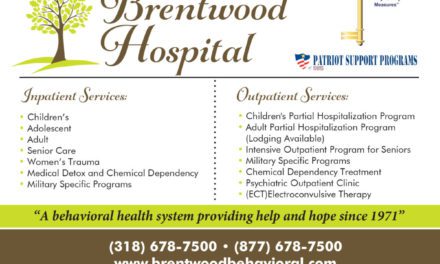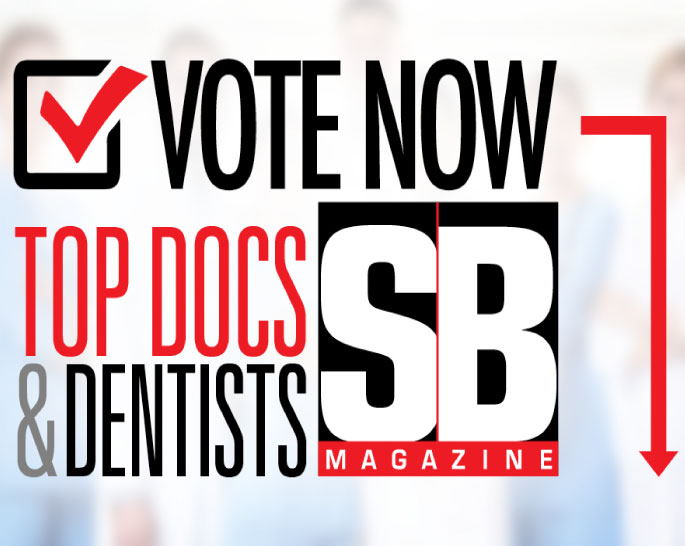Jay W. Bamburg, Ph.D., leads the clinical team of Behavioral Specialists of Louisiana. He is a Clinical Psychologist and Board Certified Behavior Analyst (BCBA) with 24 years of clinical experience. He has more than 50 publications in scientific journals related to intellectual and developmental disabilities and has consulted to private providers, school settings, long-term care facility settings, state governments, and the U.S. Department of Justice regarding quality of services for persons with intellectual and developmental disabilities.
How can psychological and behavioral assessment benefit children?
The most frequent referrals I receive at Behavioral Specialists of Louisiana are from family members, medical staff, case management services, or the school system because something “is not quite right.” These differences may include delays in speech and communication, not playing with other children, delays in fine or gross motor skills, and/or behavioral issues that seem out of context for age and situation. Psychological and behavioral assessment helps us to gain a clearer understanding of each child’s strengths and weaknesses, to plan steps needed to support the child to progress in each critical area, and to communicate with families, other professionals, and school personnel about each child’s specialized needs.
Assessment components may include intelligence testing, assessment of adaptive skills, academic screening, diagnostic checklists, individualized skills assessment, and multiple behavioral observations. Information from each of these areas is synthesized for diagnostic clarification and to inform treatment planning. Treatments may include intensive behavioral therapies through Applied Behavior Analysis, counseling services, family training, recommendations for school-based accommodations, and referral for medication management.
What kind of Treatments do you offer?
We offer both traditional counseling services and Applied Behavior Analysis (ABA).
ABA uses the scientific properties of learning and motivation, focusing on the idea that the consequences of what we do affect what we learn and what we will do in the future. A common misconception is that behavior therapy is rooted in punishment; however, ABA, as we practice it, uses only positive reinforcement to increase more positive behaviors and social interactions and to decrease inappropriate behaviors. ABA is an evidenced-based treatment for persons with behavioral issues and is proven in both research and treatment settings to provide consistent, positive results.
What types of referrals do you receive for counseling?
Families frequently call reporting anxiety, depression, behavioral issues, social issues, parent/child difficulties, and school difficulties. More recently, many of our referrals have either been generated or resulted from the child being bullied at school or in other social areas. Recent research indicates as much as 60 percent of cases of childhood anxiety and/or depression originate from the child being a target of bullying. In many cases, these children do not report bullying or find their attempts to report are not addressed. Unfortunately, one of two outcomes frequently occur. In some cases, children fall deep into anxiety or depression, which frequently leads to self-harm or beginning substance abuse issues. In other cases, childhood depression is manifest through anger and aggression and results in school-based behavior problems, problems at home, and interaction with police/ the legal system. Our counseling model provides a safe place for children to unpack feelings and emotions, process their meaning, and engage the healing process.
As children are dependent on parents, extended family, support personnel, and the school system to both protect them and shape their growth and development, we appropriately involve all relevant parties in the child’s treatment in hopes of moving a safe and productive environment into all areas of the child’s life.
What types of referrals do you receive for Applied Behavior analysis (ABA)?
In our clinic, we currently treat toddlers, children, and adolescents with Autism, intellectual disabilities, ADHD, multiple forms of emotional disturbance, and children with histories of abuse and neglect. Through one-on-one intervention, we work to increase communication, social skills, activities of daily living, problem solving, anger management, and coping, while decreasing behavioral excesses, such as tantrums and meltdowns, that inhibit each child from success across environments (e.g., home, daycare, school, play, community).
While we receive many referrals from pediatricians, but parents do not need a referral to request psychological and behavioral assessment, following which we may recommend ABA. We coordinate with each child’s pediatrician, regardless of origination of treatment request and with parental consent.
How does my assessment and treatment information from Behavioral Specialists of Louisiana transfer to the school setting?
The goal of the assessment and treatment process within Behavioral Specialists is to integrate information seamlessly into each child’s academic day. When this need is identified, our staff work with each family to navigate the specific school and school board policies for the initiation of and/or continuation of required supports. It is frequently the case with children in our care that the Diagnostic Evaluation from Behavioral Specialists constitutes the first time that the child’s strengths, weaknesses, and exceptionalities are documented in a formal manner. In this case, the evaluation serves as the starting point of school-based assessment and intervention for the child. In cases where the school has identified differences in the child’s learning styles, this evaluation serves to augment academic findings with thorough diagnostic and support information.
Professionals from Behavioral Specialists are also involved in the development of school-based services (behavior support plans; 504 plans; IEPs) and offer treatment recommendations across behavioral, academic, social, communication, and sensory arenas. Through meeting attendance, classroom observation, and real-time training of school personnel, Behavioral Specialists professionals work to ensure that required supports are implemented and documented for each child in a way that assists the school in developing a curriculum that provides the most meaningful benefit.
Why should i consider aBA for my child?
My child uses speech, occupational, and/or physical therapy. ABA works seamlessly with other therapies to assist each child to more quickly and efficiently make substantial functional gains in each identified deficit area. The intensive nature of the service allows for a high number of treatment trials and greater access to reinforcement for the performance of appropriate target skills. We work in conjunction with other therapies to accomplish rapid progress in communication, social skills, fine and gross motor skills, tolerance of various sensory stimuli, and behavioral regulation and control.
My child takes medication for ADHD. Fifty years of research has demonstrated that behavior therapy in conjunction with medication usage is the most effective form of treatment. The American Academy of Pediatrics currently recommends preschool-aged children (5 and younger) should receive behavior therapy as the first line of ADHD treatment. School-aged children (6 and older) with ADHD should receive combination therapy, consisting of behavior therapy and any medication as appropriate.
Please do not hesitate to contact us by calling 318.300.3560 if someone you love may benefit from our services.
Sponsored by Behavioral Specialists of Louisiana.










